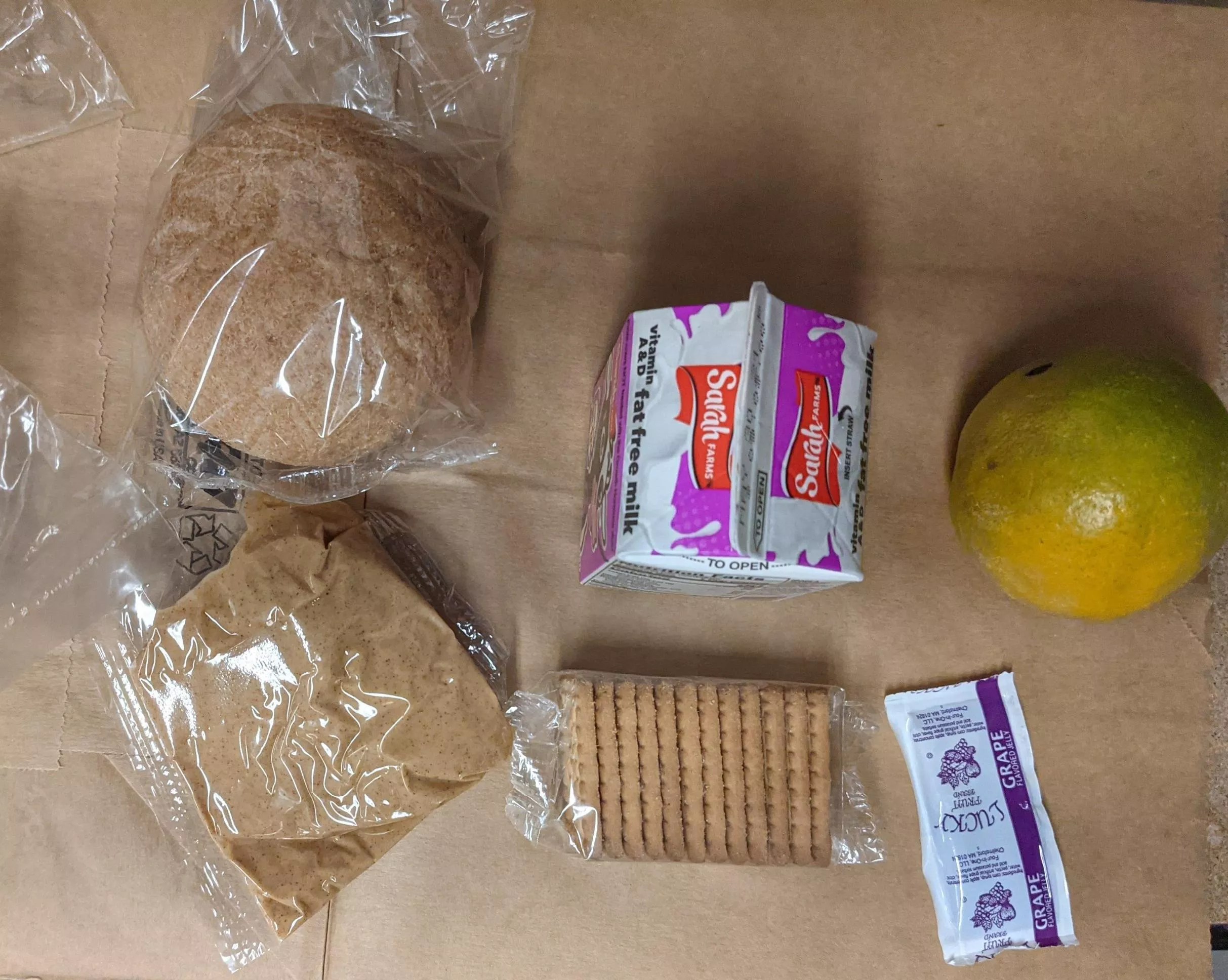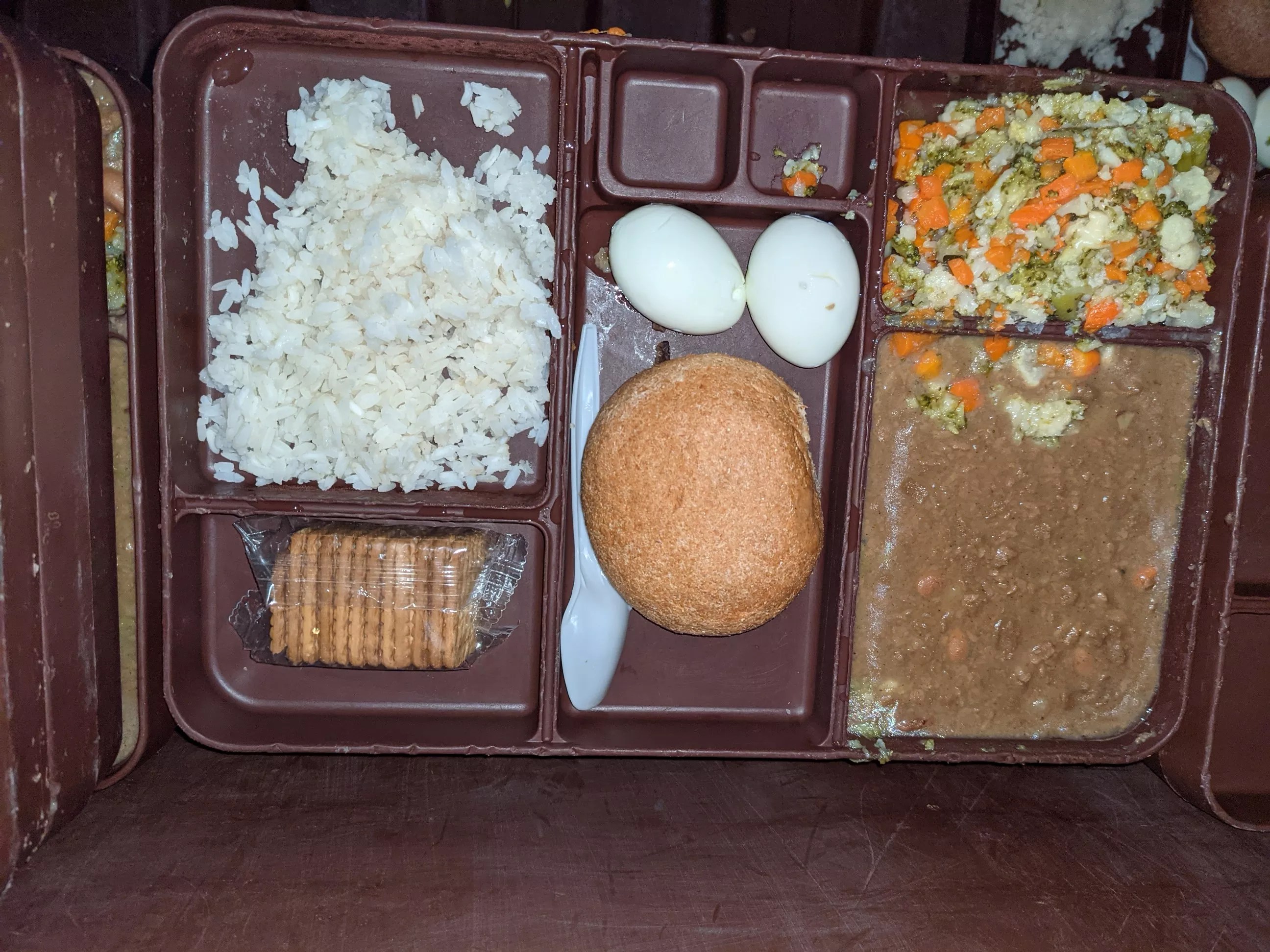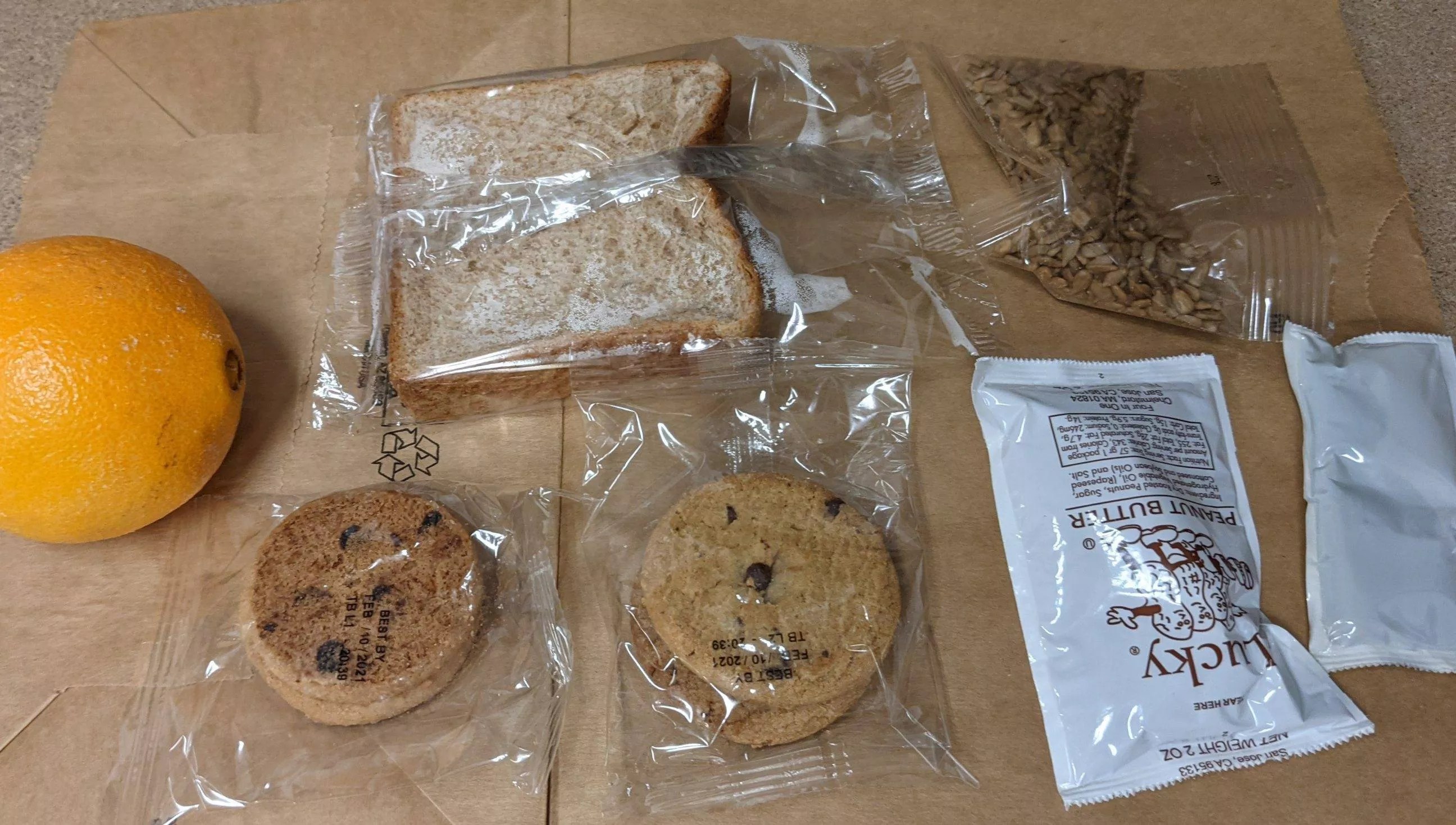
MCSO staff

Audio By Carbonatix
The main breakfast course for inmates in Maricopa County jails on the weekends is a measly serving of bread, peanut butter, jelly, cookies, a piece of fruit, along with a small carton of milk. They’re then served the exact same thing for dinner – minus the milk.
For the past six-to-eight months, the Maricopa County Sheriff’s Office, which manages the county’s five jails, has provided so-called “sack lunches” to inmates twice a day on Saturdays and Sundays, according to Calbert Gillett, an MCSO spokesperson. The basic components in the “sack lunches are one “4oz roll, peanut butter, jelly, cookies and fresh fruit.” The sack lunch that is served for breakfast also comes with a 8oz carton of milk.
For at least the last decade, MCSO has only provided inmates with two meals per day: One sack lunch early in the day and then a hot tray meal for dinner, which typically consists of food items like an unappetizing-sounding “soy base stew,” rice, vegetables, fruit, and a dinner roll. A combination of MCSO staff and sentenced inmates worked together to produce the meals, which were served seven days a week.
However, that changed during the COVID-19 pandemic, when the agency switched to only providing the sack lunches on weekends.
In an email, Gillett wrote that fewer inmates were available to work in the kitchens due to fewer defendants getting sentenced to jail time during the pandemic. He also referred vaguely to pandemic-era “operation changes” and “health and safety protocols” that reduced the number of inmates who could prepare meals.

A hot tray meal served to MCSO jail inmates on weekdays.
MCSO staff
“Like the rest of the Valley and nation our workforce at the food production facility was being affected by the COVID-19 pandemic requiring our office to adapt by replacing the Saturday and Sunday evening hot tray with another sack meal,” Gillett wrote. “These changes increased the workload on our civilian staff, which is why changes were made.”
He added that every meal served to inmates is “in accordance to nutritional requirements set forth in federal guidelines and court rulings,” and that special diets are created for individual inmates based on medical or religious needs.
“We continue to monitor this scenario and when possible hope to return to a tray meal for the evening meal on Sat & Sun in the future,” he added.
Incarcerated people do have the option to purchase items from commissary. But the commissary menu can be expensive for many inmates and consists mostly of snacks, save for meal items like ramen or tortillas.
Not surprisingly, the inmates “aren’t happy” with the skimpy weekend meals, according to an MCSO staffer who declined to be named out of fear of retribution.
“There’s not much they can do about it,” the staffer said. “If they act out they get discipline. If they refuse to eat they get discipline.”

The sack lunch: more peanut butter and jelly.
MCSO staff
Donna Leon Hamm, executive director of Middle Ground Prison Reform and a former lower court judge who primarily handled civil and misdemeanor cases, said that existing legal precedent set by case law gives jail and prison staffs a lot of flexibility in what kind of food they serve to inmates.
“The courts have been very lenient with jails and prisons on this issue,” she said. “There’s no absolute guarantee to a hot meal, especially if they’re only doing it on the weekends.”
Wanda Bertram, a spokesperson for Prison Policy Initiative, a criminal justice reform-minded think tank that focuses on correctional institutions, wrote in an email that prisons and jails often rely on commissary sales as revenue streams, incentivizing agencies not to invest in high-quality inmate meals.
“People in jail come from poor, marginalized parts of society, which means they are more likely to have chronic health issues like heart disease, high blood pressure, and diabetes,” she wrote. “Forcing people in jail to abide on an austere diet that isn’t nutritious just makes those health problems worse.”
Aside from the change in the meal offerings for inmates, the COVID-19 pandemic has impacted Maricopa County jails in other negative ways. The Maricopa County Sheriff’s Office is currently getting sued by the American Civil Liberties Union of Arizona for allegedly failing to follow proper public health protocols inside local jails, and the number of inmates who have killed themselves or attempted suicide is spiking.